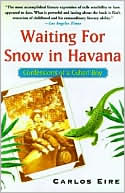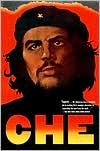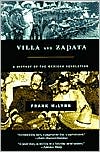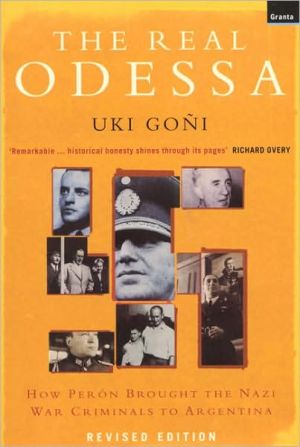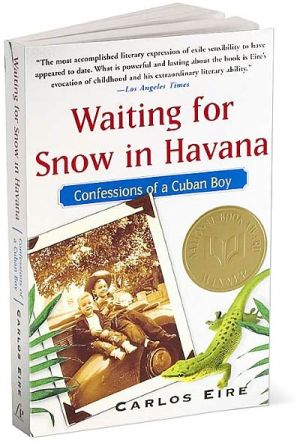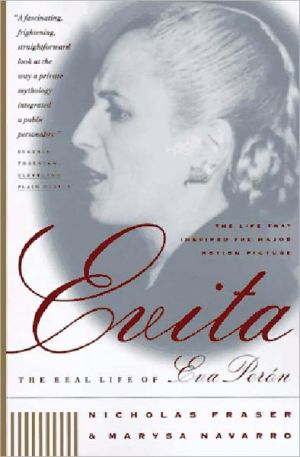Fidel y Raúl, mis hermanos: La historia secreta memorias de Juanita Castro contadas a María Antonieta Collins
Hace diez años Juanita Castro se decidió a escribir sus memorias y gracias a una doble y fortuita coincidencia: ser su amiga y ser periodista, fue que comenzamos a trabajar en ellas. Al terminarlas en 1999, simplemente decidió no publicarlas, y a lo largo de la década, ambas compartimos el secreto de guardar el libro, -el primero que yo había escrito-.\ \ Sorpresivamente, en este 2009 decidió abrir su alma en un extraordinario recorrido por el triunfo y la tragedia de su vida, y por ende, en...
Search in google:
Hace diez años Juanita Castro se decidió a escribir sus memorias y gracias a una doble y fortuita coincidencia: ser su amiga y ser periodista, fue que comenzamos a trabajar en ellas. Al terminarlas en 1999, simplemente decidió no publicarlas, y a lo largo de la década, ambas compartimos el secreto de guardar el libro, -el primero que yo había escrito-.Sorpresivamente, en este 2009 decidió abrir su alma en un extraordinario recorrido por el triunfo y la tragedia de su vida, y por ende, en los acontecimientos que han marcado las vidas de millones en los últimos cincuenta años. Esta es una gran historia para cubanos y para quienes no lo son. Es el testimonio contado en primera persona, por alguien que estuvo desde que naciera, junto a dos de los personajes políticos de la historia contemporánea de América Latina: sus hermanos Fidel y Raúl. Es por lo tanto una radiografía -la más cercana y fidedigna- que alguien pudiera hacer de los suyos: de su madre, de su padre, de los abuelos y de todos los hermanos incluyendo los famosos y los que decidieron no serlo. Es el recuento de la mujer que rompió con todo, y quien en 1964 vino a vivir al exilio cubano en los Estados Unidos. Es la historia que Juanita Castro nos debía a todos, la que nunca ha contado a nadie, y aquí la tienen.Maria Antonieta Collins\\ Library Journal Starred Review. In this engaging memoir, the sister of two of the most consequential men in Latin America, Fidel and Raúl Castro, not only speaks out about her estranged brothers but emerges as a fascinating character in her own right. The fourth of six Castro Ruz siblings, Juanita fought for and against the Cuban Revolution, turning against it when Fidel started flirting with communism. In the late 1950s, she raised money for Fidel, spent a year in the Brazilian embassy in Havana as a political refugee of the Batista regime, and even entered the United States illegally. In 1964, she fled to Mexico, publicly denounced her brother's regime, and became an active member of the Miami exile community, where she initially got a chilly reception. She even helped fund an armed attempt to overthrow Castro as late as the 1970s. Fidel is depicted as a womanizer, a troublemaker, and a bully obsessed with power, but Juanita also marvels at his idealism and intellectual force. Raúl, on the other hand, is the sweet, understanding family man who, paradoxically, embraced communism much earlier than Fidel. The villains of the story are Ernesto "Che" Guevara (depicted as a ruthless tyrant) and anybody who has badmouthed Juanita's parents, among them, exile luminaries Carlos Franqui, Norberto Fuentes, and Guillermo Cabrera Infante. One might find fault in the implausibly long and detailed dialogs. However, Mexican journalist Collins, who interviews Juanita, deserves credit for having patched together this thoroughly fascinating narrative. Highly recommended.—Carlos Rodríguez Martorell, East Elmhurst, NYCopyright © Reed Business Information, a division of Reed ElsevierInc. All rights reserved.
\ Library JournalStarred Review. \ In this engaging memoir, the sister of two of the most consequential men in Latin America, Fidel and Raúl Castro, not only speaks out about her estranged brothers but emerges as a fascinating character in her own right. The fourth of six Castro Ruz siblings, Juanita fought for and against the Cuban Revolution, turning against it when Fidel started flirting with communism. In the late 1950s, she raised money for Fidel, spent a year in the Brazilian embassy in Havana as a political refugee of the Batista regime, and even entered the United States illegally. In 1964, she fled to Mexico, publicly denounced her brother's regime, and became an active member of the Miami exile community, where she initially got a chilly reception. She even helped fund an armed attempt to overthrow Castro as late as the 1970s. Fidel is depicted as a womanizer, a troublemaker, and a bully obsessed with power, but Juanita also marvels at his idealism and intellectual force. Raúl, on the other hand, is the sweet, understanding family man who, paradoxically, embraced communism much earlier than Fidel. The villains of the story are Ernesto "Che" Guevara (depicted as a ruthless tyrant) and anybody who has badmouthed Juanita's parents, among them, exile luminaries Carlos Franqui, Norberto Fuentes, and Guillermo Cabrera Infante. One might find fault in the implausibly long and detailed dialogs. However, Mexican journalist Collins, who interviews Juanita, deserves credit for having patched together this thoroughly fascinating narrative. Highly recommended.—Carlos Rodríguez Martorell, East Elmhurst, NY\ Copyright © Reed Business Information, a division of Reed ElsevierInc. All rights reserved.\ \ \


